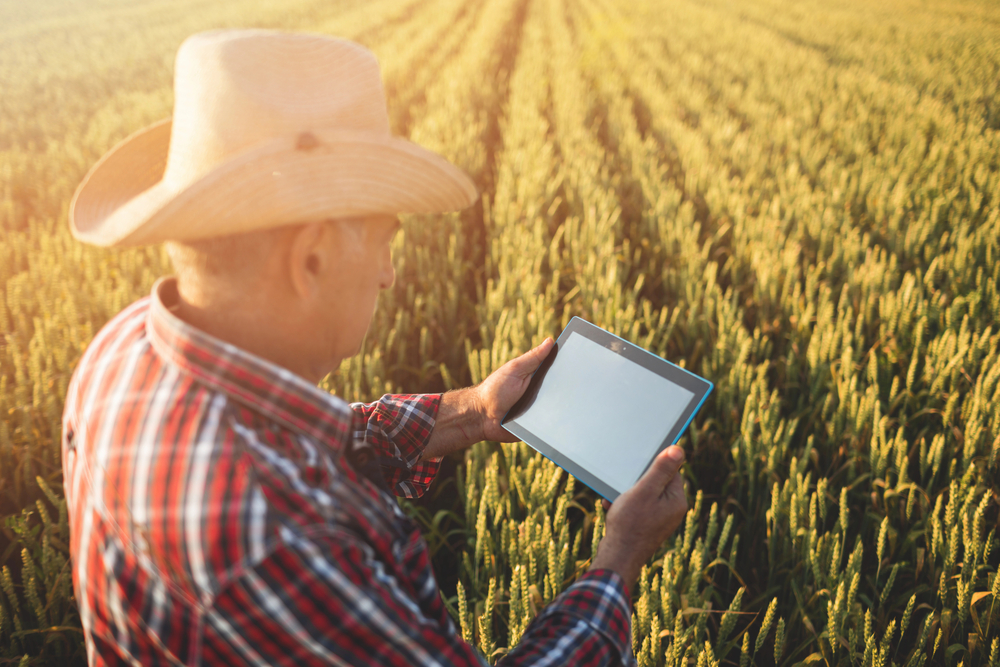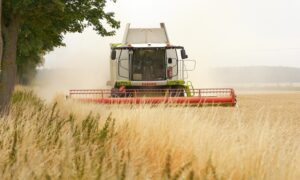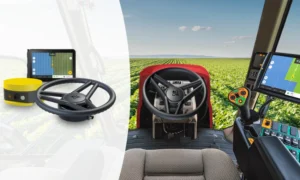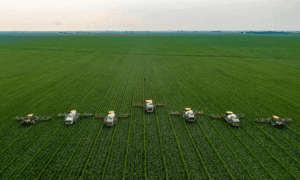According to the United Nations, the world population is expected to reach 9.7 billion by 2050, necessitating a substantial increase in food production to meet rising demands. However,. factors such as soil degradation, water scarcity, and extreme weather events are exacerbating food shortages, and threatening global food security.
Here, agricultural technology (Agtech) emerges as our beacon of hope, offering resilience in agriculture, and delivering revolutionary solutions to enhance productivity and sustainability. Agtech integrates advanced technologies such as precision farming, artificial intelligence, data analytics, and biotechnology to optimize every aspect of farming operations.
The importance of Agtech cannot be overstated, as it directly aligns with several of the United Nations’ Sustainable Development Goals (SDGs). Specifically, SDG 2 aims to “End hunger, achieve food security and improved nutrition, and promote sustainable agriculture.” In the face of growing environmental and demographic challenges, Agtech stands out as the most significant technological advancements of our time.
Agricultural Technology offers practical and scalable solutions to feed our world
By harnessing the power of innovation, Agricultural Technology offers practical and scalable solutions to feed our world. The following article highlights 10 companies at the forefront of the Agtech revolution, showcasing their pioneering technologies and their impact on transforming the future of agriculture.
#1 Deere & Company (John Deere)
John Deere is renowned for its precision farming technologies, including GPS guidance systems, telematics, and data management tools that enable farmers to optimize their operations, reduce input costs, and increase yields. Deere’s GPS guidance systems, such as AutoTrac and StarFire, significantly improve farming efficiency in several ways:
- Reduced Overlap and Input Costs: The GPS guidance allows precise vehicle positioning and steering, minimizing overlaps when applying inputs like fertilizers, pesticides, and seeds. This can reduce input costs by up to 10%.
- Increased Productivity: With accurate guidance, operators can work at higher speeds, cover more ground per hour, and utilize the full width of implements like planters and harvesters. This can increase productivity by up to 18%.
- Reduced Operator Fatigue: The automated steering provided by systems like AutoTrac relieves operators from the strain of constantly steering, reducing fatigue and mistakes, especially during long hours or low visibility conditions.
#2 ICL Group
ICL Group’s various Agtech tools are revolutionizing the industry by providing farmers and agronomists with data-driven insights, recommendations, and solutions to optimize crop nutrition, identify deficiencies, and improve overall farming practices. Here’s how each tool contributes to Agtech:
- Agmatix Platform: Agmatix uses AI to standardize agronomic data and provide actionable insights for optimizing crop nutrition and sustainable farming practices. This platform helps farmers to optimize fertilization strategies, ensuring a balanced nutrient supply and minimizing environmental impact.
- Growers Platform: The Growers platform is an open digital marketplace linking farmers to ag retailers and manufacturers, promoting optimal input use aligned with profitability and sustainability.
- Planet Startup Hub Accelerator: ICL’s Planet Startup Hub nurtures innovative Agtech and foodtech startups by providing investment, mentorship, access to ICL’s resources and expertise, and a global partnership network. Key focus areas include next-gen fertilizers, biostimulants, alternative proteins, and AI-driven solutions, driving sustainable agriculture forward.
#3 Bayer Crop Science
Bayer’s Climate FieldView platform is a leading digital farming solution that combines data from multiple sources to provide farmers with field-level insights, enabling them to make informed decisions for maximizing productivity and sustainability. Bayer Crop Science’s Climate FieldView platform stands out as a unique and industry-leading digital farming solution due to the following key features:
- Comprehensive Data Integration: FieldView allows farmers to seamlessly collect, store, and analyze data from various sources, including different brands of equipment, precision farming tools, and farm management software systems. This centralized data management capability provides a holistic view of farm operations.
- Advanced Data Analytics: FieldView leverages advanced data science, machine learning, and artificial intelligence to generate actionable insights from the collected data. Features like field health imagery analysis, yield analysis, and variable rate prescriptions enable data-driven decision-making.
- Seed Scripting Technology: FieldView’s seed scripting technology utilizes data from hundreds of thousands of Bayer’s research plots to provide optimized seed planting rate recommendations tailored to specific field conditions. This unique capability helps maximize yield potential and input efficiency.
#4 Syngenta
Syngenta is a pioneer in developing advanced crop protection products, high-yielding seeds, and digital agriculture services that help farmers increase yields, reduce waste, and adopt sustainable practices.
- Advanced Crop Protection Products: Syngenta’s innovative crop protection solutions, including herbicides, insecticides, and fungicides, are designed to protect crops from pests and diseases while minimizing environmental impact.
- High-Yielding Seeds: Syngenta develops genetically modified and hybrid seeds that offer higher yields, improved resistance to pests and diseases, and better adaptability to changing climatic conditions.
- Digital Agriculture Services: Syngenta’s digital platforms provide farmers with tools for precision agriculture, including real-time monitoring, data analytics, and decision support systems, enhancing farm productivity and sustainability.
#5 AGCO
AGCO offers a range of precision farming technologies, such as machine guidance, telematics, and farm management software, that enable farmers to optimize their operations, reduce input costs, and increase productivity.
- Machine Guidance Systems: AGCO’s machine guidance systems improve the accuracy of field operations, reducing overlap and input wastage while ensuring optimal plant spacing and uniformity.
- Telematics Solutions: AGCO’s telematics solutions allow farmers to monitor and manage their equipment remotely, optimizing machine performance, reducing downtime, and ensuring timely maintenance.
- Farm Management Software: AGCO’s farm management software integrates data from various sources to provide a comprehensive view of farm operations, facilitating data-driven decision-making and improving overall farm efficiency.
#6 DroneDeploy
DroneDeploy‘s drone-based aerial mapping and analytics solutions provide farmers with valuable insights into crop health, enabling them to identify issues early and take corrective actions, ultimately improving yields and reducing waste.
- Aerial Mapping: DroneDeploy’s aerial mapping technology allows farmers to create detailed maps of their fields, providing valuable information on soil conditions, crop health, and irrigation needs.
- Analytics Solutions: DroneDeploy’s analytics tools use machine learning and AI to analyze aerial imagery, identifying potential issues such as pest infestations, nutrient deficiencies, and water stress.
- Precision Agriculture Applications: DroneDeploy’s solutions enable precision agriculture practices, allowing farmers to apply inputs more efficiently, reduce waste, and improve overall farm productivity and sustainability.
#7 Indigo Agriculture
Indigo Agriculture leverages microbiology and digital technologies to develop innovative products that increase crop yields, improve soil health, and promote sustainable farming practices.
- Microbial Seed Treatments: Indigo’s microbial seed treatments enhance crop resilience and yield by promoting beneficial interactions between plants and soil microorganisms.
- Digital Platforms: Indigo’s digital platforms provide farmers with tools for monitoring crop health, optimizing input applications, and improving farm management practices.
- Sustainable Farming Practices: Indigo’s products and services promote sustainable farming practices by improving soil health, reducing chemical inputs, and enhancing overall farm productivity.
#8 Farmers Business Network
Farmers Business Network offers data-driven analytics, input procurement services, and other tools that help farmers optimize their operations, reduce costs, and increase profitability.
- Data-Driven Analytics: FBN’s analytics tools provide farmers with actionable insights based on data from their fields, helping them make informed decisions about input applications and crop management.
- Input Procurement Services: FBN’s input procurement services offer farmers access to a wide range of agricultural inputs at competitive prices, helping them reduce costs and improve profitability.
- Farm Management Tools: FBN’s farm management tools enable farmers to track and analyze their operations, optimizing resource allocation and improving overall farm efficiency.
#9 Granular Insights (part of Corteva Agriscience)
Granular Insight’s farm management software provides tools for increasing operational efficiency, enabling farmers to make data-driven decisions and optimize their resources.
- Farm Management Software: Granular’s software integrates data from various sources to provide a comprehensive view of farm operations, facilitating data-driven decision-making and improving overall farm efficiency.
- Operational Efficiency: Granular’s tools help farmers streamline their operations, reducing input costs, minimizing waste, and improving productivity.
- Resource Optimization: Granular’s software provides insights into resource use, helping farmers to optimize input applications, reduce environmental impact, and enhance sustainability.
#10 Prospera Technologies
Prospera Technologies uses computer vision and AI for crop monitoring and analysis, allowing farmers to detect issues early, optimize inputs, and ultimately increase yields while reducing waste and environmental impact.
- Computer Vision Technology: Prospera’s computer vision technology analyzes images of crops to identify potential issues such as pest infestations, nutrient deficiencies, and disease outbreaks.
- AI-Driven Insights: Prospera’s AI algorithms provide farmers with actionable insights based on the analysis of crop images, enabling them to take corrective actions promptly.
- Precision Agriculture Applications: Prospera’s solutions enable precision agriculture practices, helping farmers to optimize input applications, reduce waste, and improve overall farm productivity and sustainability.
Summary
Each of these ten companies is at the forefront of the Agtech revolution, making significant strides in ensuring a more sustainable future for our planet. By integrating advanced technologies such as precision farming, artificial intelligence, data analytics, and biotechnology, they are transforming agriculture into a more efficient industry. Together, these companies are improving agricultural productivity while promoting sustainable practices, ensuring that we can meet the food demands of a growing population while preserving our planet for future generations.



































